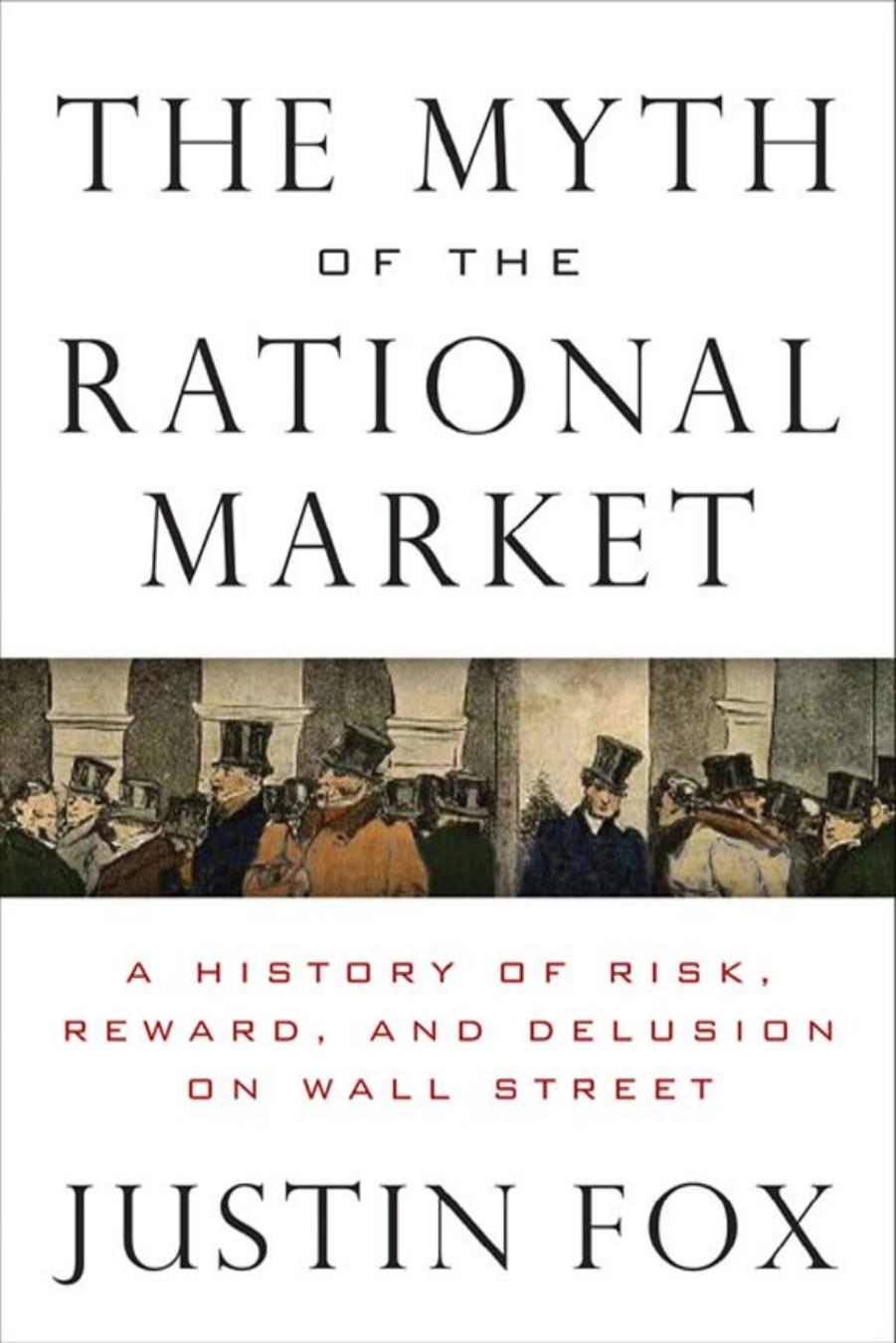The Myth of the Rational Market by Justin Fox

Author:Justin Fox
Language: eng
Format: epub, pdf
Publisher: HarperCollins
Published: 2009-06-13T16:00:00+00:00
FOR THE LONGEST TIME, THE author of the efficient market hypothesis was a mere spectator to these unsettling events. Eugene Fama did have a front-row seat—he was on Bänz’s dissertation committee, for one thing. After the mid-1970s, though, he veered clear of serious research or writing on market efficiency. He did some work with his former student Michael Jensen on agency theory. He studied the impact of inflation on markets. He learned to windsurf—well enough that by the mid-1990s he declared himself to be “probably the best [windsurfer] in the world over age fifty.”37 He couldn’t stay silent forever, though. And when Fama returned to the grand theory that had made his reputation, his data-driven, almost blindered approach brought a fascinating result. He didn’t exactly repudiate the efficient market, but he managed to shake its foundations in a way that no one else could have done.
It started in 1991 with a look back, at the request of the editors of the Journal of Finance, at the landmark paper on the efficient market hypothesis that he had published two decades before. “Sequels are rarely as good as the originals,” Fama began, and while the rest of his verdict was largely positive, it was far from triumphal. The efficient market hypothesis had “passed the acid test of scientific usefulness,” he argued. “It has changed our views about the behavior of returns, across securities and through time.” It had also changed Wall Street, helping bring about the rise of index funds, performance measurement, and the like. In a faint echo of what Michael Jensen had claimed in 1978, Fama wrote that “the past research on market efficiency is among the most successful in empirical economics, with good prospects to remain so in the future.”
That was a different thing from saying that the market was perfectly rational or efficient, and Fama did not deny that some of the seeming certainties of earlier days had proved to be mirages. Sanford Grossman and Joseph Stiglitz had demonstrated, he acknowledged, that the strong form of the efficient market hypothesis could not be true. It had to be possible to beat the market using private information, or else no one would ever bother to spend money gathering information. The lesson from Bob Shiller and Larry Summers’s 1980s broadsides, Fama continued, was “that irrational bubbles in stock prices are indistinguishable from rational time-varying expected returns.” There was no way to be sure whether the market was irrationally volatile or not.38
But these still were, in Fama’s view of the matter, side issues. As he had originally proposed it, the efficient market hypothesis held that stock price movements couldn’t be predicted, except by means of the capital asset pricing model. According to CAPM, it was beta—a stock’s volatility relative to the rest of the market—that determined how well that stock would perform over time. It was a simple tradeoff of risk and reward. Evidence had been piling up since the late 1970s against this combination of the efficient market and CAPM,
Download
The Myth of the Rational Market by Justin Fox.pdf
This site does not store any files on its server. We only index and link to content provided by other sites. Please contact the content providers to delete copyright contents if any and email us, we'll remove relevant links or contents immediately.
International Integration of the Brazilian Economy by Elias C. Grivoyannis(109765)
The Radium Girls by Kate Moore(12017)
Turbulence by E. J. Noyes(8040)
Nudge - Improving Decisions about Health, Wealth, and Happiness by Thaler Sunstein(7690)
The Black Swan by Nassim Nicholas Taleb(7106)
Rich Dad Poor Dad by Robert T. Kiyosaki(6607)
Pioneering Portfolio Management by David F. Swensen(6288)
Man-made Catastrophes and Risk Information Concealment by Dmitry Chernov & Didier Sornette(6004)
Zero to One by Peter Thiel(5786)
Secrecy World by Jake Bernstein(4740)
Millionaire: The Philanderer, Gambler, and Duelist Who Invented Modern Finance by Janet Gleeson(4465)
The Age of Surveillance Capitalism by Shoshana Zuboff(4274)
Skin in the Game by Nassim Nicholas Taleb(4236)
The Money Culture by Michael Lewis(4196)
Bullshit Jobs by David Graeber(4179)
Skin in the Game: Hidden Asymmetries in Daily Life by Nassim Nicholas Taleb(3987)
The Dhandho Investor by Mohnish Pabrai(3758)
The Wisdom of Finance by Mihir Desai(3728)
Blockchain Basics by Daniel Drescher(3574)
